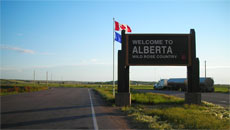OTTAWA - Prime Minister Justin Trudeau said Friday it would be a mistake for the United States to position troops near the Canadian border.
And Trudeau said he has made that clear to the Trump administration, as Ottawa seeks clarity from Washington on any American possible plans to deploy its military.
"We have expressed to the United States that it would be a mistake to position troops near the Canadian border, and we certainly hope that they're not going to go through with that," the prime minister said Friday during his daily televised briefing from his Rideau Cottage residence.
The prime minister said when he knows more, he'll share the information with Canadians.
"We continue to engage closely in back and forths with the American administration on many, many issues around the border, and when we have more information, we'll share it," said Trudeau.
Deputy Prime Minister Chrystia Freeland was also forceful in denouncing the idea.
"Canada has continued to express clearly and forcefully its view that there is no logical reason to militarize our border with the United States and we have been very clear also that such an action would damage our relationship," she said Friday.
Ottawa was still scrambling to react to the U.S. proposal, which appeared aimed at bolstering the work of its own domestic border service. But the potential scope or extent of any U.S. plan to deploy its military along the world's longest undefended border remained, at least as of midday Friday, unexplained.
The two countries already have a mutual ban in place on non-essential travel, but the movement of trade, commerce and cross-border workers has been allowed to continue.
But U.S. President Donald Trump added to the confusion in remarks at the White House late Thursday afternoon, when he said — without any explanation — that the U.S. already has troops "along the border" with Canada.
Trump then went on a riff about one of his favourite topics — tariffs — and restated old concerns about cheap Chinese steel coming into the U.S. market from Canada.
"You know, we have a lot of things coming in from Canada. We have trade — some illegal trade that we don't like. We have very strong sanctions on some. We have very strong tariffs on dumping steel. And we don't like steel coming through our border that's been dumped in Canada so they can avoid the tariff," said Trump.
Canada and Mexico have resolved a major standoff with the Trump administration after it imposed punitive tariffs on their steel and aluminum exports to the U.S. The U.S. had concerns about countries such as China using Canada and Mexico as a conduit to dump cheap steel into the American market. Canada and Mexico are now closely monitoring their foreign metals imports to avoid that from happening — and to prevent the U.S. from reinstating tariffs.
"You know, I charge a lot of tariff for the steel. And it's been great for our steel companies because now they can really go — you look at what's happened with steel. It's been pretty incredible. But we've taken in billions and billions of dollars in tariffs on steel, and much of it comes in from China, but they can come through the Canadian border, too. So we're always watching for that," said Trump.
Earlier Thursday, the federal Liberal government used some of the sternest diplomatic language to condemn any White House proposal to send soldiers to the Canada-U.S. border, ostensibly to keep illegal migrants from spreading COVID-19.
Canada has argued "forcefully'' against the idea, said Freeland, who was reluctant to characterize the status of the proposal, first reported by Global News, beyond saying a U.S. decision "has not yet been acted upon or fully taken."
Indeed, it may never come to pass, she suggested: countries around the world, including Canada, have been responding with uncharacteristic speed and urgency to an escalating global emergency — a process that involves discussing any and all measures, no matter how drastic, even if they don't come to fruition.
The current, mutual ban on non-essential travel by Canada and the U.S. reflects that the countries realize the economic importance of avoiding a complete shutdown at the border. For Canada, keeping trade moving is essential — the U.S. is its largest trading partner, as the economies of the two countries are deeply intertwined.
Trudeau reiterated Friday in Ottawa that Canada and the U.S. have the longest unmilitarized border in the world and it is in the interests of both countries to keep it that way.
It is no secret, however, Trump has long been seized with securing his country's southern border with Mexico, and has recently been talking about fortifying those efforts under the pretence of protecting Americans from the novel coronavirus.
Trump has also made it clear that in an election year, he is chafing for a return to some form of economic normalcy, and sooner rather than later — the April 12 Easter weekend is his hoped-for timeline, a date that has left public-health officials incredulous.

